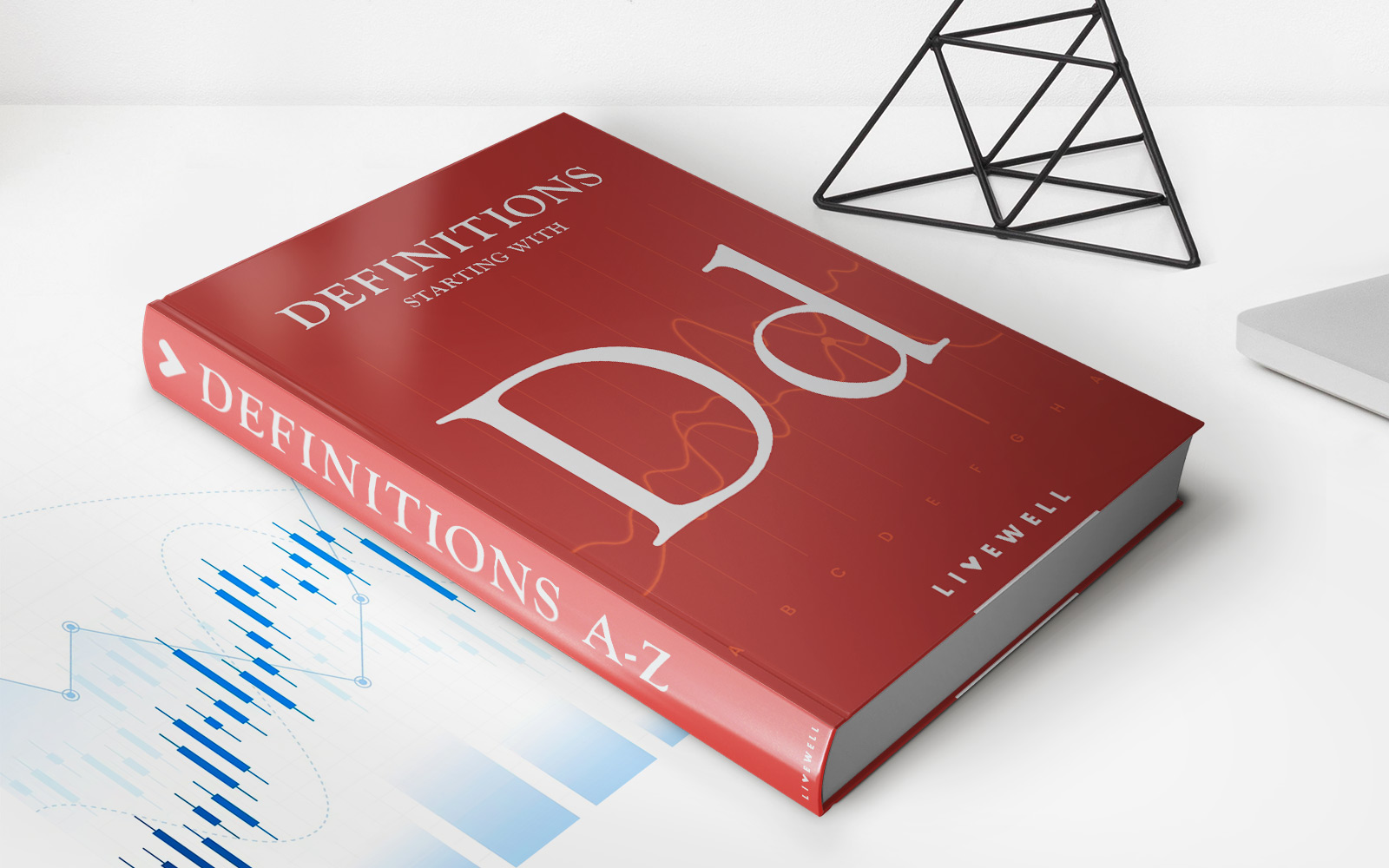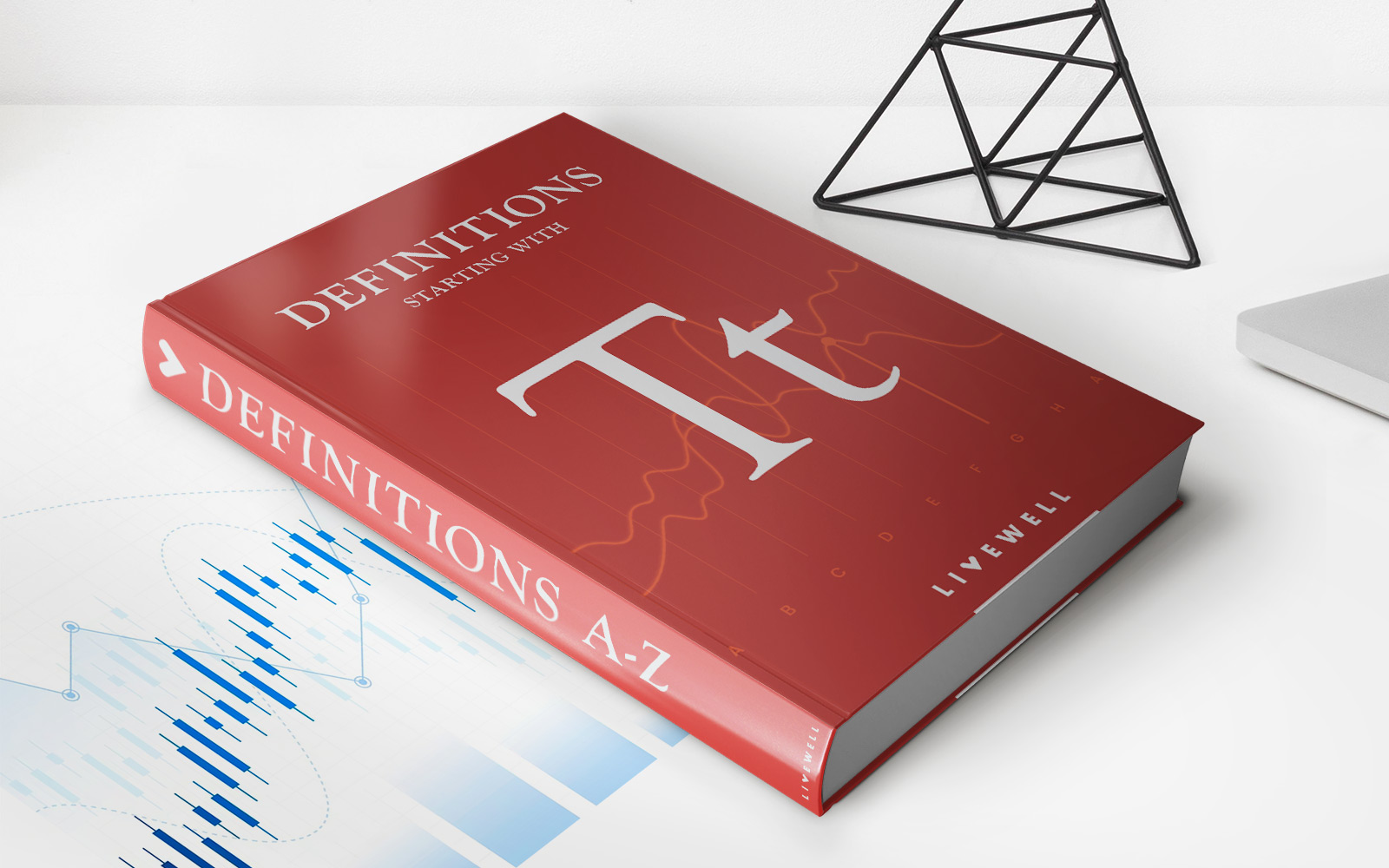

Finance
What Are Pre-Tax Deductions?
Published: January 20, 2024
Discover the benefits of pre-tax deductions in finance and learn how they can help optimize your financial planning. Explore tax-saving strategies and maximize your savings today.
(Many of the links in this article redirect to a specific reviewed product. Your purchase of these products through affiliate links helps to generate commission for LiveWell, at no extra cost. Learn more)
Table of Contents
Introduction
In the world of personal finance, understanding various financial terms and concepts is essential. One such concept that often comes up is pre-tax deductions. If you are new to the world of finance or simply looking to expand your knowledge, it is important to have a clear understanding of what pre-tax deductions are and how they can benefit you.
In simple terms, pre-tax deductions refer to certain expenses or contributions that are deducted from your income before the calculation of taxes. These deductions are typically made on a pre-tax basis, meaning they reduce your taxable income, which in turn results in a lower tax liability.
Pre-tax deductions may seem like a technical and complex concept, but once you understand how they work, you can take advantage of them to save money and optimize your finances. In this article, we will explore pre-tax deductions in detail, including their definition, examples, benefits, common types, and considerations you should keep in mind.
By the end of this article, you will have a solid understanding of pre-tax deductions and how they can be utilized to your advantage. So, let’s dive in and explore the fascinating world of pre-tax deductions!
Definition of Pre-Tax Deductions
Pre-tax deductions refer to specific expenses or contributions that are subtracted from your gross income before taxes are calculated. These deductions are taken out of your paycheck before income taxes, Social Security taxes, and other required withholdings are applied.
The primary purpose of pre-tax deductions is to reduce your taxable income and ultimately lower your tax liability. By lowering your taxable income, you may be able to move into a lower tax bracket, leading to significant tax savings.
Pre-tax deductions are typically offered as part of an employee benefits package, where you have the option to allocate a portion of your income towards certain expenses or contributions that are deducted from your paycheck on a pre-tax basis.
It is important to note that pre-tax deductions are only available to those who are eligible and participate in certain programs offered by their employers. These deductions are not available to self-employed individuals or those who do not have access to employer-sponsored benefits.
Examples of pre-tax deductions include contributions to retirement plans such as a 401(k) or 403(b), health insurance premiums, flexible spending accounts (FSAs), transportation expenses, and more. These deductions are subtracted from your gross pay, reducing your taxable income, and ultimately lowering the amount of taxes you owe.
Understanding the concept of pre-tax deductions is essential as it can have a significant impact on your overall financial situation. By taking advantage of these deductions, you can effectively reduce your tax burden and potentially increase your take-home pay.
Examples of Pre-Tax Deductions
Pre-tax deductions can encompass a wide range of expenses or contributions that are deducted from your income before taxes are calculated. Here are some common examples of pre-tax deductions:
- Retirement Contributions: One of the most popular pre-tax deductions is contributions to retirement plans such as a 401(k), 403(b), or 457(b). These contributions are deducted from your income before taxes, allowing you to save for retirement while reducing your taxable income.
- Health Insurance Premiums: Many employers offer health insurance as part of their benefits package. The premiums you pay for health insurance coverage can be deducted from your income on a pre-tax basis, providing you with valuable health coverage while lowering your taxable income.
- Flexible Spending Accounts (FSAs): FSAs allow you to set aside pre-tax dollars to pay for eligible healthcare and dependent care expenses. By contributing to an FSA, you can lower your taxable income and save money on healthcare and childcare costs.
- Transportation Expenses: Some employers offer pre-tax deductions for commuting and transportation expenses. This can include commuter benefits for qualified public transportation expenses or parking fees. By taking advantage of these deductions, you can lower your taxable income while saving on commuting costs.
- Education Expenses: Certain educational expenses, such as tuition for professional development courses, may qualify as pre-tax deductions if they are directly related to your job. Be sure to consult with a tax professional to determine if your education expenses qualify for pre-tax deductions.
These are just a few examples of pre-tax deductions that are commonly offered by employers. The specific deductions available to you may vary depending on your employer’s benefits package and the tax laws in your country or region.
It’s important to take advantage of pre-tax deductions whenever possible, as they can potentially save you a significant amount of money in taxes and increase your overall financial well-being.
Benefits of Pre-Tax Deductions
Pre-tax deductions offer several benefits that can have a positive impact on your financial situation. Here are some key advantages of utilizing pre-tax deductions:
- Tax Savings: Perhaps the most significant benefit of pre-tax deductions is the potential for tax savings. By reducing your taxable income, you may be able to move into a lower tax bracket, resulting in a lower overall tax liability. This can lead to substantial savings and more money in your pocket.
- Increased Take-Home Pay: Since pre-tax deductions reduce your taxable income, they can increase your take-home pay. By lowering the amount of taxes withheld from your paycheck, you have more money available to cover your day-to-day expenses or save for other financial goals.
- Retirement Savings: Contributing to a retirement plan through pre-tax deductions allows you to save for your future while potentially reducing your current tax burden. These deductions can help you build a robust retirement nest egg and enjoy a financially secure retirement.
- Healthcare Savings: Pre-tax deductions for health insurance premiums and flexible spending accounts (FSAs) can help you manage healthcare costs more effectively. By using pre-tax dollars to pay for medical expenses, you are essentially getting a discount on those expenses, further stretching your healthcare budget.
- Easier Budgeting: By taking advantage of pre-tax deductions, you can automate savings and budgeting. These deductions are typically subtracted from your paycheck automatically, helping you build savings or cover essential expenses without much effort from your end.
Overall, pre-tax deductions provide significant financial advantages that can positively impact your overall financial well-being. They offer tax savings, increase your take-home pay, help you save for retirement, and make healthcare expenses more manageable. By understanding and utilizing pre-tax deductions effectively, you can optimize your finances and achieve your financial goals more efficiently.
Common Types of Pre-Tax Deductions
Pre-tax deductions encompass various expenses and contributions that can be deducted from your income before taxes. Here are some common types of pre-tax deductions:
- Retirement Contributions: Contributions made to employer-sponsored retirement plans, such as a 401(k), are one of the most popular types of pre-tax deductions. These contributions are deducted from your income before taxes, allowing you to save for retirement and potentially lower your tax liability.
- Health Insurance Premiums: Many employers offer health insurance as part of their benefits package, and the premiums you pay for health coverage can be deducted from your income on a pre-tax basis. This ensures that you have valuable health insurance coverage while reducing your taxable income.
- Flexible Spending Accounts (FSAs): FSAs allow you to set aside pre-tax dollars to pay for eligible healthcare or dependent care expenses. By contributing to an FSA, you can lower your taxable income and save money on healthcare and childcare costs.
- Transportation Expenses: Some employers offer pre-tax deductions for commuting and transportation expenses. This can include commuter benefits for public transportation expenses or parking fees. Taking advantage of these deductions can lower your taxable income and help you save on commuting costs.
- Group Insurance Premiums: Pre-tax deductions can also apply to other types of insurance premiums, such as life insurance, disability insurance, and dental insurance. These deductions reduce your taxable income, providing you with valuable insurance coverage at a more affordable cost.
- Work-related Expenses: Certain work-related expenses may qualify as pre-tax deductions, such as professional development courses, required certifications, or necessary job-related equipment. These deductions can help offset the cost of career advancement while reducing your taxable income.
It’s important to note that the availability of pre-tax deductions may vary depending on your employer’s benefits package and the tax laws in your country or region. Consulting with your HR department or a tax professional can help you understand the specific pre-tax deductions that you are eligible for.
By taking advantage of common types of pre-tax deductions, you can not only save money on taxes but also optimize your overall financial situation.
Considerations for Pre-Tax Deductions
While pre-tax deductions offer numerous benefits, it is essential to consider certain factors before deciding to utilize them. Here are some key considerations to keep in mind:
- Eligibility and Availability: Pre-tax deductions are typically available to employees through their employer’s benefits package. However, not all employers offer the same deductions, so it’s important to understand which deductions you are eligible for. Review your benefits package and speak with your HR department to ensure you are taking advantage of all available options.
- Plan Contribution Limits: Some pre-tax deductions have contribution limits set by the government or your employer. For example, retirement plans like a 401(k) have annual contribution limits. Be mindful of these limits to maximize your benefits and avoid any potential penalties or missed opportunities for tax savings.
- Effect on Take-Home Pay: While pre-tax deductions can increase your overall tax savings, they can also lower your take-home pay in the short term. When considering pre-tax deductions, assess how the reduced income will align with your monthly budget and financial obligations. Calculate your after-tax income to ensure it is sufficient to cover your expenses.
- Changing Circumstances: Keep in mind that pre-tax deductions are typically set on an annual basis or during specific enrollment periods. If your circumstances change (e.g., a change in job, marital status, or dependents), you may need to adjust your deductions accordingly. Stay informed and review your deductions regularly to ensure they align with your current situation.
- Impact on Benefits: Some pre-tax deductions, such as contributions to retirement plans, can impact your eligibility for certain government benefits or employer matches. Understand how these deductions may affect your overall benefits package and make informed decisions considering both short-term tax savings and long-term financial goals.
It is crucial to consult with a financial advisor or tax professional to fully understand the implications of pre-tax deductions in your specific situation. They can provide personalized advice based on your income, tax bracket, and financial goals.
By carefully considering these factors and understanding the impact of pre-tax deductions on your financial situation, you can make informed decisions that align with your overall financial goals and optimize your savings and tax benefits.
Conclusion
Pre-tax deductions are an essential component of personal finance that can have a significant impact on your tax liability and overall financial well-being. Understanding what pre-tax deductions are and how they work is crucial for optimizing your finances and saving money.
By utilizing pre-tax deductions, such as retirement contributions, health insurance premiums, flexible spending accounts, and transportation expenses, you can effectively lower your taxable income and potentially move into a lower tax bracket. This results in tax savings, increased take-home pay, and the opportunity to save for retirement and manage healthcare costs more efficiently.
However, it is important to consider various factors before implementing pre-tax deductions. Assessing your eligibility, contribution limits, impact on take-home pay, and potential effects on benefits are crucial considerations. Consulting with a financial advisor or tax professional can provide personalized guidance to ensure you make informed decisions based on your specific circumstances.
In conclusion, pre-tax deductions offer significant benefits and opportunities for optimization in personal finance. By understanding, utilizing, and carefully considering the various aspects of pre-tax deductions, you can maximize your savings, reduce your tax liability, and work towards achieving your financial goals.














